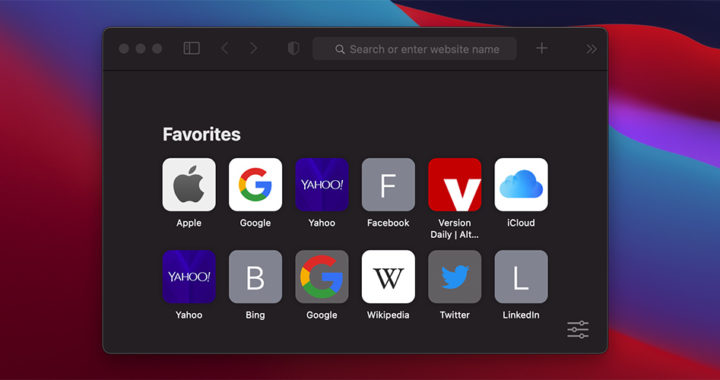Based on the combined numbers of global users in both desktop and mobile market segments, Safari is the most popular web browser in the world after Google Chrome. The popularity of this web browser from Apple comes from the upward trend in the sales and market penetration of macOS devices or Mac computers and iOS and iPadOS or iPhone and iPad devices. Note that these devices come with Safari preinstalled.
Advantages of Safari: Notable Features and Strengths
Demonstrated Software-Hardware Optimization
Software or applications developed by Apple have been known to work well in Apple devices. The same is true for Safari. The company has developed this web browser both with the relevant operating systems and hardware specifications in mind. It runs efficiently in Mac computers, iPhones, and iPads by default.
Acceptable Speed and Level of Performance
Browsers such as Chrome and Safari remain the fastest. However, the performance of this browser from Apple remains acceptable. Furthermore, because of the software-hardware integration, it does not consume too much hardware resources, especially RAM, unlike Chrome and other browsers based on Chromium codebase.
Handoff Feature for Uninterrupted Browsing
Another notable feature of Safari is the Handoff feature that lets users continue their browsing session between different Apple devices. As an example, a particular user reading an article in The New York Times on his MacBook can continue reading the same article on his iPhone or iPad. This feature ensures an uninterrupted browsing experience.
Clean and Minimalist Design Language
One of the advantages of Safari is that it is one of the first browsers that adopted and standardized a straightforward user interface. There are no unnecessary buttons and menus placed on the top-most portion of the window. Some users might say that its interface is cleaner and simpler than Chrome, Mozilla Firefox, and Microsoft Edge.
Built-In Privacy Protection and Security Tools
This browser also has several privacy-related features and tools. There is a standard Privacy Browsing mode that prevents web trackers, a pop-up blocker, and a JavaScript blocker. There is also a Privacy Report tool based on Intelligent Tracking Prevention technology that uses machine learning to block cross-site tracking without losing website functionality.
Apple Device Emulation for Website Developers
Another noteworthy feature is the browser allows web developers to emulate iOS, iPadOS, and Apple Watch devices and runtimes using the Simulator tool that is accessible upon downloading and installing the XCode integrated development environment application. They can also remotely debug or inspect the web views via the Develop too.
Disadvantages of Safari: Key Issues and Criticisms
Not Available in Other Operating Systems
Apple made Safari available for Windows from 2007 to 2012 but decided to discontinue pursuing development for platforms outside its ecosystem. It is now only available for macOS, iOS, and iPadOS operating systems. Nevertheless, this can be a drawback due to the absence of true cross-platform usability.
Criticisms Over Poor Security Considerations
The browser has notable privacy features and tools. However, critics have highlighted the absence of other built-in security measures to promote secured web browsing. For example, while it displays websites with SSL or TSL encryption, it does not notify users whenever they access unencrypted sites and web pages. Software updates are also infrequent.
Limited Options for Synchronizing Data
Remember that this browser has a Handoff feature that lets a particular user continue his or her browsing session on another Apple device. However, data only syncs via the iCloud service, and there are no options for users to use other cloud services. Furthermore, it only syncs browsing history and bookmarks. Other browsers let users sync settings and other user preferences.
Small Library of Browser Extensions
Another disadvantage of Safari is the limited availability of extensions or add-ons. Critics have noted that this is a huge downside for a browser that has a spare arsenal of features. Browsers based on Chromium such as Chrome, Edge, and Opera have interoperability when it comes to these add-ons. Firefox has its established library of extensions.
Little Control Over Customization
True to the established product philosophy of Apple that has been observed in mac and iOS operating systems, this browser gives users very limited control over the look and feel of the interface. They are essentially stuck with the default user interface. Browsers such as Chrome, Opera, and Firefox provide a great deal of customization options.
Takeaways: The Strengths and Weaknesses of Safari Web Browser
Safari is a capable web browser with some fundamental features that include built-in privacy tools and a minimalistic user interface. Furthermore, what sets it apart from browsers such as Google Chrome, Mozilla Firefox, and Microsoft Edge is the inherent software-hardware optimization that allows it to run while using hardware resources efficiently.
There are still some notable issues. The privacy and security features and considerations of this browser are not terrible, but they are not great. The small selection of extensions also limits its expandability. The fact that this browser is only available in Apple operating systems also makes it somewhat irrelevant when compared to true cross-platform browsers.
